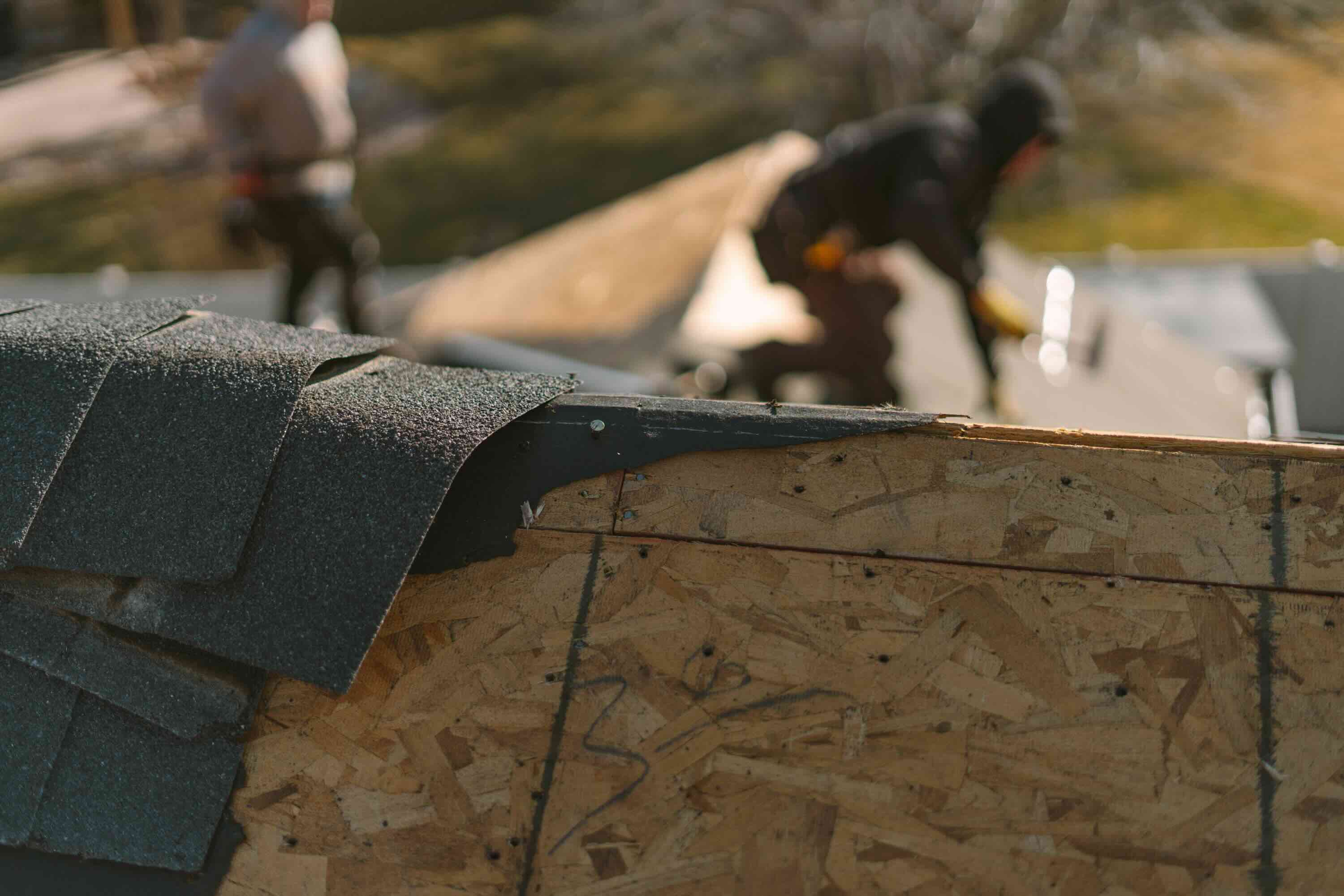Table of Contents
Win more bids. Close more jobs. Start with our newsletter.
Get exclusive insights, tips, and trends your competition doesn't want you to know.
Unlocking your roofing sales team's potential hinges on effective sales coaching techniques. But how can you implement these techniques to ensure your sales reps are well-prepared for success?
In this blog post, we’ll explore the importance of sales coaching in roofing, various coaching techniques, and tips for successful implementation.
📋 SUMMARY
A solid roofer resume is the first step to getting your next job.
- Create a standout roofer resume by showcasing key abilities and qualifications, tailoring it to the job description, quantifying achievements with numerical data, proofreading for errors, and formatting consistently.
- Include accurate contact information and a professional profile in your resume to make a good first impression.
- Obtain industry certifications, a high school diploma/GED, apprenticeships, or on-the-job training for career advancement opportunities.
Essential Roofer Resume Components
A well-structured roofer resume is your ticket to showcasing your expertise in various roofing systems and your ability to handle roof repairs. The most important section of your resume is the work experience because it demonstrates your proficiency in working with different roof surfaces.
Accurate contact information, a professional profile, and a clear objective or summary statement highlighting your strengths and qualifications are all key to making a good first impression.
Take the time to carefully examine the job posting when crafting your resume. Make sure your experience aligns with the position and that you’re still interested in the job. A well-crafted resume sample can serve as a helpful guide throughout the process.
Next, we’ll delve into the critical components of a roofer's resume.
Contact Information and Professional Profile
Your contact information should include your name, email address, and any experience working on commercial buildings. In the professional profile section, incorporate your experience handling and removing old roofing materials.
Additionally, consider including a comprehensive LinkedIn page or other social media profiles to highlight your applicable skills, such as the ability to lift roofing materials.
Never underestimate the significance of accurate contact information and a professional profile. This information allows recruiters to reach out to you and helps create a positive initial impression, showcasing your experience working on both residential and commercial roofs.
Objective or Summary Statement
A professional summary is a concise overview that showcases your most relevant qualifications and skills at the beginning of your resume, such as experience working with flat roofs. To create a compelling summary, refer to a roofer resume example and tailor your statement to the job description, highlighting your relevant skills and experiences.
Having a clear and concise objective or summary statement is paramount. It emphasizes your skills and qualifications, allowing hiring managers to quickly gauge your expertise in various roofing materials.
On the other hand, an objective statement focuses on your professional goals and aspirations for the position you’re applying for, such as working with hot asphalt.
Work Experience and Achievements
The work experience section of your roofer resume should highlight your relevant experience and accomplishments, such as following the best repair procedures. To make your experience section stand out, feature notable achievements from prior roles, like working with single-ply roofing systems.
If you lack experience, showcase your knowledge of rubber roofing to demonstrate your qualifications.
Make sure the work experience you include is relevant by reviewing the job description and aligning each point in your resume with the position requirements. Use numbers to illustrate your accomplishments, such as:
- How many intersecting roof surfaces you’ve successfully worked on
- How much customer satisfaction increased during your time on the team
- How much revenue your sales have generated
Be mindful of verb tense, using present tense for your current job and past tense for previous roles. Refer to a roofer resume example for guidance on verb usage and formatting.


Skills and Qualifications for Roofers
As a roofer, your skills and qualifications demonstrate your ability to:
- Construct weatherproof roofs by installing materials such as shingles and asphalt on different roof surfaces
- Comprehend various roofing systems
- Follow safety protocols
- Competently repair roofs
These qualifications and skills are necessary for a roofer, especially when inspecting roofing problems.
Showcasing your skills and qualifications can pique the interest of hiring managers and enhance your job prospects. Next, we’ll examine the vital skills and qualifications for a successful roofer career, such as material knowledge, safety procedures, and repair techniques.
Material Knowledge: Asphalt Shingles, TPO, PVC, EPDM
A successful roofer should be familiar with various roofing materials, such as asphalt shingles, TPO, PVC, and EPDM.
Each material has unique benefits and drawbacks, and it’s essential to understand these differences to provide the best solutions to your clients.
Safety Procedures and Equipment
In the roofing industry, adhering to safety procedures and using appropriate safety equipment to prevent accidents and injuries is vital. Roofers should follow safety procedures such as identifying and addressing potential hazards on the job site, complying with OSHA regulations, and wearing a safety harness.
In addition to following safety procedures, roofers should also use the right equipment, maintain a clean and organized work area, and stop working in unfavorable weather conditions.
These practices not only ensure your safety as the roofer but also protect the customer and their property.
Repair and Installation Techniques
A successful roofer career requires that you master these techniques:
- Roofing repair
- First and second fixing carpentry
- Green roof systems
- Proper use of tools
- Roofing material installation
- Roof maintenance and inspection
- Roof flashing installation and repair
These skills guarantee superior workmanship and customer satisfaction. Honing these techniques helps demonstrate your expertise and value to potential employers, boosting your chances of success in the competitive job market.
Additionally, staying up-to-date on the latest repair and installation techniques can help you provide the best possible service to your clients.
Education, Training, and Certifications
A roofer’s career requires the following qualifications:
- A high school diploma or GED
- Apprenticeships
- On-the-job training
- Industry-recognized certifications
While formal education isn’t required for roofers, having these qualifications can open up more job opportunities and help you stand out from other candidates.
Next, we’ll examine the different types of education, training, and certifications that can enhance your roofer career and resume.
High School Diploma or GED
Having a high school diploma or GED is advantageous for roofers because it showcases a certain degree of knowledge and abilities that employers and colleges may favor. You can use a high school diploma or a GED to apply for jobs and colleges, but there may be some differences in how employers and educational institutions perceive them.
Despite these differences, a high school diploma or GED can open up more job and college opportunities for you, demonstrating your competence and aptitude to potential employers and colleges.
Apprenticeships and On-the-Job Training
Apprenticeships and on-the-job training offer numerous benefits for roofers, including:
- The opportunity to gain practical experience
- Learning from experienced professionals
- Hands-on instruction
- Classroom instruction
- Online instruction
Typically, applicants must be 18 or older and have a high school diploma or GED to be eligible for an apprenticeship or on-the-job training programs.
To locate and apply for apprenticeships and on-the-job training, investigate local programs, contact experienced professionals in the field, and develop a professional resume and cover letter.
Industry-Recognized Certifications
Industry-recognized certifications can bolster your roofer resume and career opportunities. Some credentials to consider include:
- National Roofing Contractors Association (NRCA) Certification
- OSHA Safety Certificate
- Certifications from roofing manufacturers like CertainTeed, GAF, Owens Corning, Carlisle, and Johns Manville
These certifications can showcase your proficiency and mastery in the field.
Getting these certifications enhances your resume and distinguishes you from other candidates, increasing your chances of being selected for an interview and ultimately landing the job.
Customizable Roofer Resume Templates and Examples
Creating a professional and effective resume doesn’t have to be daunting. You can find customizable roofer resume templates and examples on websites such as:
- ResumeBuilder.org
- Zippia
- Kickresume
- JobHero
These resources can help you craft a standout resume that stands out and showcases your skills, qualifications, and experience in the best possible light, increasing your chances of landing the job.
Tips for a Standout Roofer Resume
A standout roofer resume should:
- Showcase your skills and qualifications
- Be tailored to the job description
- Quantify your achievements
- Be properly proofread and formatted
By following these guidelines, you can create a resume that leaves a lasting impression on hiring managers and increases your chances of being selected for an interview.
Next, we’ll explore these tips to help you create a standout roofer resume.
Tailoring Your Resume to the Job Description
To increase your chances of being selected for an interview, tailor your resume to the specific job description. Carefully consider the abilities, qualifications, and experience outlined in the job description and emphasize these elements in your resume.
Customizing your resume for each job application helps align your summary, skills, and work experience sections with the specific job requirements.
This strategy not only increases your chances of being noticed by hiring managers but also demonstrates that you’re a serious candidate who has taken the time to understand the position's specific needs.
Quantifying Achievements
Quantifying achievements on your roofer resume can showcase your effectiveness and accomplishments in prior positions. Use numerical data to illustrate your achievements, such as the number of roofs installed or repaired or the time saved on project completion.
Quantitative evidence of your achievements illustrates your impact and success in previous roles, enabling hiring managers to assess your expertise and potential fit for the position.
Proofreading and Formatting
Thoroughly proofreading and consistently formatting your roofer resume creates an error-free and visually appealing document.
By detecting any mistakes or grammatical errors and ensuring consistent formatting across the resume, you can make a positive impression on hiring managers and increase the likelihood of your resume being reviewed.
When proofreading and formatting your roofer resume, make sure to:
- Check for typos and spelling errors
- Guarantee that the font is consistent throughout the document
- Use bullet points to make the information more legible
- Consider using a professional template
The Roofer Resume for Success
In conclusion, crafting the perfect roofer resume involves showcasing your skills and qualifications, highlighting your education and certifications, and following the above tips for a standout resume.
By doing so, you’ll create a professional and effective resume that sets you apart from the competition and increases your chances of landing the job you’ve always wanted. So, get ready to impress hiring managers and climb the ladder of success in your roofing career.



Grow your business
JobNimbus is more than software—it’s a true growth accelerator. Boost efficiency and maximize profit with the simple, all-in-one tool.
Roofer Resume FAQs
A roofer’s resume aims to highlight experience with roof installation, repairs, and maintenance for materials like shingles, EPDM, TPO, metal panels, or tile. It should demonstrate proficiency in removing snow and debris, estimating material and labor costs, and providing price quotes.
For a career in roofing, you need to possess physical strength and endurance, attention to detail, a safety-focused attitude, technical knowledge, communication skills, experience in carpentry, the ability to work at heights for long hours, balance, manual dexterity, math skills, and physical stamina.
A roofer’s resume should include contact information, a professional profile, an objective or summary statement, and a work experience section outlining relevant achievements with various roofing systems.

Blog / Guide Title CTA
Once you've created a strong Linkedin profile, you can leverage it as part of your broader marketing strategy. Use your Linkedin to share content, join industry groups, and network with others in the contracting space.
If you're looking for additional marketing support, consider partnering with JobNimbus Marketing to maximize your business growth. Schedule a call with our team to learn how to boost your marketing efforts today.

Blog / Guide Title CTA
Once you've created a strong Linkedin profile, you can leverage it as part of your broader marketing strategy. Use your Linkedin to share content, join industry groups, and network with others in the contracting space.
If you're looking for additional marketing support, consider partnering with JobNimbus Marketing to maximize your business growth. Schedule a call with our team to learn how to boost your marketing efforts today.

Download Our Free Tips for Recession-Proofing Your Company
We’ll show you five simple things you can do to help your business survive a recession.





.jpeg)



